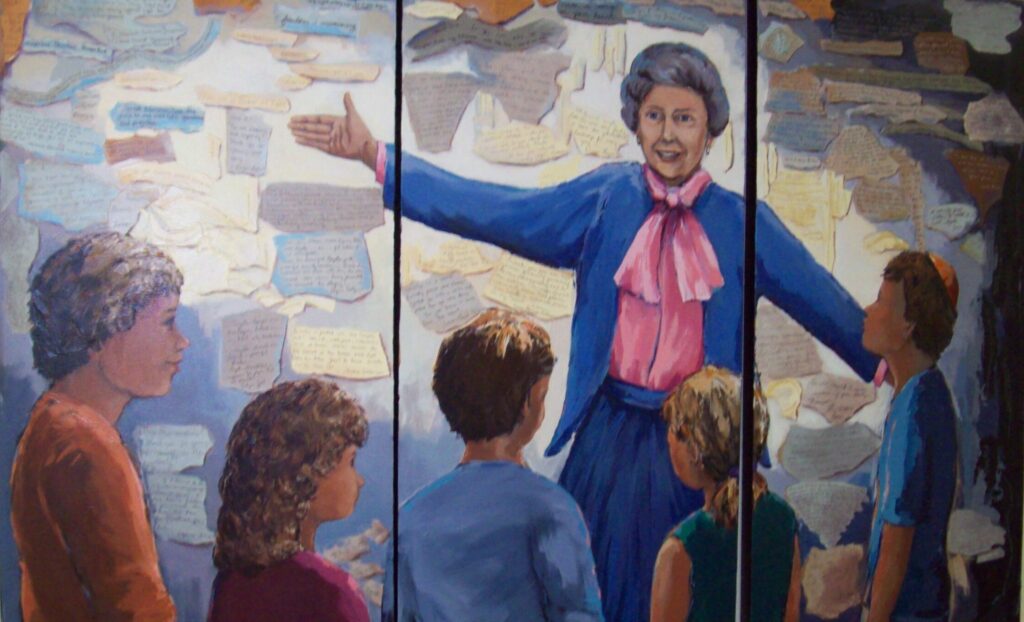Gizella Abramson (1924 – 2011)

Born in Tarnopol, Poland, in 1924, Gizella Gross Abramson was 11 at the outbreak of World War II. Gizella is the sole Holocaust survivor of her immediate family — her father, her mother, and her younger brother. Gizella’s family lived in eastern Poland near Tarnopol before the war.
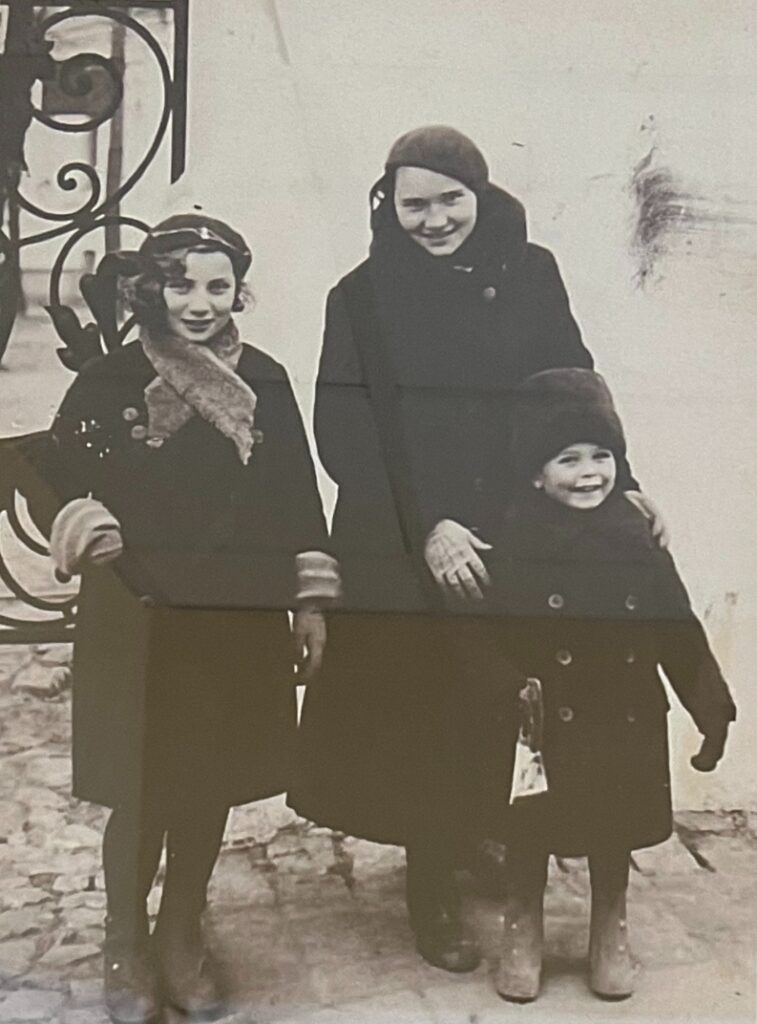
In September 1939, as Germans invaded western Poland, the Soviets seized the east, including Gizella’s home. Her family was forced to live in a tent on their farm while the Russians took everything they owned. During this time, Gizella, already fluent in German thanks to her grandmother, learned Russian. The Russians didn’t discriminate by religion or race; they confiscated property from everyone in the village.
After their defeat in the Battle of Britain, the Germans attacked eastern Poland in the summer of 1941. They soon learned Gizella’s family was Jewish and sent them to the Lodz Ghetto. There, her brother was killed by the Gestapo with a gunshot to the mouth. Gizella often snuck out at night with other kids to beg and trade for bread, always avoiding capture. When her parents received the ‘liquidation letter’ from the Germans, her father told her to escape under cover of darkness to meet her uncle. That was the last time she saw her parents.
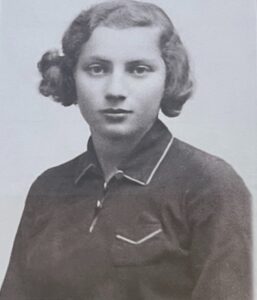
Under cover of the night, Gizella escaped the ghetto to meet her uncle, a physician hiding in a safe house owned by a Czech family. He entrusted her with taking her two younger cousins, Emil and Genie, to a nearby Czech farmer who would hide them in his barn. After safely delivering the children, Gizella continued on foot to another farm for her refuge. Along the way, she stumbled upon the horrific sight of truckloads of Jews being machine-gunned into ditches. The sheer brutality of the massacre left her in shock, struggling for days to comprehend the horrors she had witnessed.
Walking around the forest, Gizella stumbled into a Russian-Polish resistance camp, babbling in Russian and German. A Russian officer, recognizing her bilingual skills, contacted the leader of a spy ring in eastern Poland. Soon after, a handler took her to a farm where she was given false papers and posed as his Christian granddaughter. A German general was living on the farm, and the general used the farm for his division headquarters.
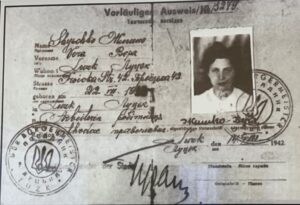
Gizella’s mission was to secretly eavesdrop on German conversations, hiding her fluency in the language. Each night, she discreetly emptied trash bins, collected discarded papers, and memorized the insignias of various German military units.
Gizella strolled to the Farmer’s Market twice weekly to rendezvous with her Russian handler. There, she passed on scraps of paper, recounted overheard conversations, and sketched the insignias from various German uniforms, all crucial intelligence for her contact.
After six months, the Russian handler took her to the Lodz Ghetto for another assignment. She received new false papers and an apartment in the city. She was to walk to a Gestapo headquarters and apply for a job as a maid, which she got. She was to spy on the Germans as she previously did and would meet her handler twice a week at night.
An ammunition dump was set up behind the Gestapo headquarters, and Gizella, under orders from her Russian handler, sketched a mobile rocket stored there and passed the drawing to him. Her next mission was to steal a gate key, make an imprint, and return it unnoticed. She executed the plan and delivered the imprint to her handler.
Days later, a massive explosion rocked the night, demolishing the arms depot. The Russian handler burst into Gizella’s apartment, panic-stricken, urging her to flee, believing the Gestapo had been following him. Their fake papers are discovered at a checkpoint outside Lodz, leading to their arrest. Gizella spent the night in jail and could hear the handler’s screams of torture until silence signals his death. By morning, she is branded with Gestapo lightning bolts on her left upper arm and thrown into the Lodz ghetto without medical care.
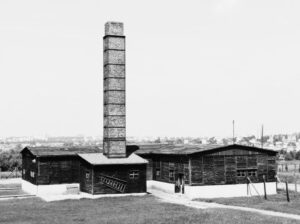
A few days after arriving at the Lodz ghetto in January 1944, Gizella was crammed onto a train to Majdanek, weakened by starvation. The journey was a nightmare; people suffocated and died in the dark, airless car with a stench of vomit and waste. At Majdanek, chaos reigned as families were torn apart amidst screams, beatings, and gunfire. Gizella was selected for work, spending grueling days standing at roll call, breaking rocks, and digging holes, all under constant threat of beatings. Meals were meager—thin, tasteless soup with the occasional dead insect and sawdust bread. At night, prisoners were packed into cramped cubbies while lice and bedbugs tormented them.
In the summer of 1944, as Soviet forces closed in, the Nazis evacuated Majdanek, transporting most prisoners to other camps. Gizella was slated for execution but somehow survived the firing squad, dodging bullets and hiding in the trench until the Germans fled and Soviet liberators arrived, saving her life. The Russians cared for her until the war ended and then handed her over to the Americans. Gizella spent time in a displaced persons camp in Germany from May 1945, when she was liberated, to November 1946 before immigrating to the US in November 1946 to join her aunt, Regina, in Brooklyn, New York.
Gizella graduated from high school in 1947 and graduated from Sarah Lawrence College in Bronxville, New York, in 1951 with a B.A. in Education. On September 7, 1952, she married her beloved husband, Paul Abramson. After relocating with IBM to Raleigh in 1970, Gizella Abramson became an active member of Temple Beth Or, working as the Director of Education for 19 years. She also served as a charter member of the North Carolina Council on the Holocaust from 1981 to 1996 and was a devoted volunteer for Meals on Wheels of Wake County for 25 years.
In her later years, Gizella became a highly sought-after speaker who visited middle and high schools, teacher workshops, military bases, college campuses, churches, and police academies throughout the state. She often said she survived the Holocaust to share her experience with young people, which she did until she died in 2011.
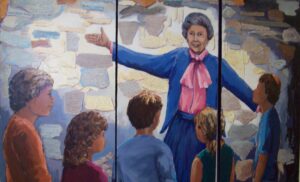
Gizella Abramson’s life is a testament to extraordinary resilience and courage in the face of unimaginable horrors. Surviving the loss of her entire family and the brutality of the Holocaust, Gizella not only endured but thrived, dedicating her life to educating others about the atrocities she witnessed. Her tireless work as a speaker and educator ensured that the lessons of the Holocaust remained vivid for future generations. Gizella’s legacy is a powerful reminder of the strength of the human spirit and the importance of bearing witness to history to prevent such horrors from ever happening again.
This is an NC HERO post. Part of the North Carolina Holocaust Education, Research, and Outreach Project.

